The Center for Civic Education was founded at the University of California, Los Angeles, in 1965. Initially titled the Committee on Civic Education, the Center was a joint project of the Schools of Education and Law and the Department of Political Science. Members included scholars from these disciplines and from philosophy, political psychology, and sociology. Early curricular programs of the Center focused upon the Bill of Rights and were implemented widely in California with the assistance of the California Department of Education and leading educators in ten of the largest school systems in the state.
In 1969, members of the Board of Governors of the State Bar of California decided to support the creation and implementation of a program in civic education that could be implemented statewide with the assistance of county and city bar associations and bar auxiliaries. Upon reviewing the curricular and professional-development programs available in the state, the State Bar contacted the Committee on Civic Education and gave it a contract to conceptualize and then implement a statewide program entitled “Law in a Free Society.”
Together, the state bar and the UCLA committee created an executive committee for the Law in a Free Society Program composed of leading scholars, educators, and members of the legal profession. In 1981, this committee became the board of directors of what is now known as the Center for Civic Education. Founding members of the board made significant contributions to the development and expansion of the Center’s programs, which are now implemented in every state and in eighty-two other countries.
The Center for Civic Education has been supported since its inception by a dedicated team of hardworking professionals who keep the education of young people and the support of their teachers constantly at the forefront. Below is a brief biography of our founder, Charles N. Quigley. You can read remembrances of Chuck Quigley from John Hale and Mark Molli here.
Charles N. Quigley
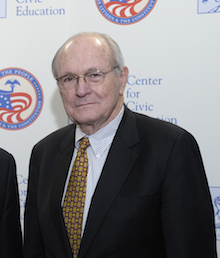 Charles N. Quigley was one of the most prominent curriculum, framework, and program developers in the field of civic education. Prior to the founding of the Law in a Free Society Project of the State Bar of California in 1970, Quigley was executive director of the Committee on Civic Education, an interdisciplinary faculty committee at the University of California, Los Angeles founded in 1965. He was also the author and editor of many textbooks, curricular materials, and articles on civic education.
Charles N. Quigley was one of the most prominent curriculum, framework, and program developers in the field of civic education. Prior to the founding of the Law in a Free Society Project of the State Bar of California in 1970, Quigley was executive director of the Committee on Civic Education, an interdisciplinary faculty committee at the University of California, Los Angeles founded in 1965. He was also the author and editor of many textbooks, curricular materials, and articles on civic education.
Quigley was the principal creator of We the People: The Citizen and the Constitution, Project Citizen, the CIVITAS Model Civic Education Curriculum Framework Project; the National Standards for Civics and Government; and the Civitas International Programs.
Quigley served as a senior consultant and organizer for numerous civic education reform efforts, including two White House conferences, four Congressional Conferences on Civic Education, and the National Commission on Civic Renewal. He was selected by the secretary of education to be the principal respondent to the NAEP Civics report in 1999.
In May 2011 he and Justice Sandra Day O'Connor were selected by NAEP to respond to the release of the 2010 NAEP Civics Report.
Margaret Stimmann Branson
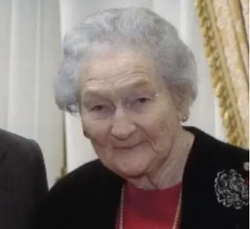 Dr. Margaret Branson made remarkable contributions to civic education in the United States and throughout the world. She was the author of numerous textbooks and professional articles. She was a principal researcher and author of We the People: The Citizen & the Constitution, the National Standards for Civics and Government, and many other works. Prior to joining the Center, Branson was assistant superintendent for instructional services of the Kern County Schools in California. Branson was also an associate professor of education at Holy Names University and director of secondary education at Mills College in Oakland, California.
Dr. Margaret Branson made remarkable contributions to civic education in the United States and throughout the world. She was the author of numerous textbooks and professional articles. She was a principal researcher and author of We the People: The Citizen & the Constitution, the National Standards for Civics and Government, and many other works. Prior to joining the Center, Branson was assistant superintendent for instructional services of the Kern County Schools in California. Branson was also an associate professor of education at Holy Names University and director of secondary education at Mills College in Oakland, California.
The Center has always enjoyed the strong support of its Board of Directors. The Center would like to recognize the following members who from its inception made especially significant contributions.
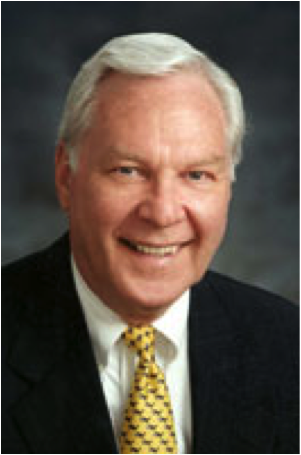 In 1969, Hugh Friedman was a member of the Board of Directors of the San Diego County Bar Association. Because the San Diego Bar had been actively involved in promoting civic education in its county, the state bar asked its assistance in reviewing existing programs in California in an attempt to identify a potential partner in the development of its statewide program. Hugh Friedman was one of a small group of attorneys who undertook this task, resulting in their selection of the Committee on Civic Education at UCLA to develop the proposed program and implement it with initial funding from the San Diego County Bar and the state bar.
In 1969, Hugh Friedman was a member of the Board of Directors of the San Diego County Bar Association. Because the San Diego Bar had been actively involved in promoting civic education in its county, the state bar asked its assistance in reviewing existing programs in California in an attempt to identify a potential partner in the development of its statewide program. Hugh Friedman was one of a small group of attorneys who undertook this task, resulting in their selection of the Committee on Civic Education at UCLA to develop the proposed program and implement it with initial funding from the San Diego County Bar and the state bar.
Once the program was established, Hugh became a founding member of the advisory committee of the Law in a Free Society project, vice-chair from 1970–80, chair from 1981–87, and an active member of the Board of Directors of the Center until his passing in 2013.
From 1969 until 2013 he assisted in the conceptualization of every major program of the Center. This began with his help with the development of the curriculum of the Law in a Free Society program and especially its sections on legal and moral responsibility. Today, the curricular materials he helped create are used throughout the United States and in more than fifty emerging democracies.
Not only did Hugh assist with the conceptualization, implementation, and oversight of Center programs, he and his wife, Lynn Schenk, were instrumental in gaining funding for the Center’s programs from public- and private-sector sources, bringing in more than three million dollars in funding for programs in California.
Hugh’s other professional achievements and contributions to American society are remarkable. He practiced law throughout his career, was a professor of corporate law at the University of San Diego School of Law since 1959 and the author of the definitive 2 volume treatise, “California Practice Guide to Corporations”. He received the Award for Outstanding Service to the Legal Profession from the San Diego County Bar Association. He was president of the San Diego County Bar Association, the Legal Aid Society of San Diego, a founding director of the Defender’s Program of San Diego, and chair of the Executive Committee of the Conference of Delegates of the State Bar.
The scope of his influence and activities was broad. He was appointed to the California State Air Resources Board, served as president of the 22nd District Agricultural Association, and was chair of the San Diego Civil Service Commission.
His continued devotion to education resulted in his being appointed by Governor Jerry Brown to the presidency of the California State Board of Education. He also served as vice chairman of the California Commission on the Teaching Profession.
The Center was privileged to enjoy the long-standing contributions of Hugh Friedman to the creation and flourishing of its many programs.
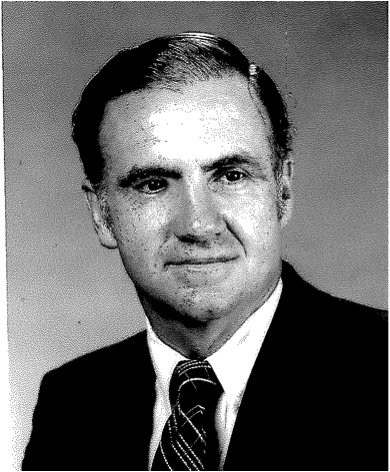 In the late 1960s, the Bill of Rights Advisory Committee to the California State Board of Education funded the Center to implement a statewide program using its curricular materials on the Bill of Rights for secondary students. Assisted by the California State Department of Education, the Center established pilot programs in ten of the largest school systems in the state. In each of these school districts, superintendents appointed leaders, typically social studies supervisors, to implement the pilot programs. The supervisor for San Diego Unified School District was Dave Fish, who implemented the program with the assistance of Hugh Friedman and other leading members of San Diego County Bar Association and the courts.
In the late 1960s, the Bill of Rights Advisory Committee to the California State Board of Education funded the Center to implement a statewide program using its curricular materials on the Bill of Rights for secondary students. Assisted by the California State Department of Education, the Center established pilot programs in ten of the largest school systems in the state. In each of these school districts, superintendents appointed leaders, typically social studies supervisors, to implement the pilot programs. The supervisor for San Diego Unified School District was Dave Fish, who implemented the program with the assistance of Hugh Friedman and other leading members of San Diego County Bar Association and the courts.
Shortly after the Law in a Free Society program was launched with the support of the state bar and the San Diego County Bar, Dave Fish was appointed to its advisory committee and subsequently to the Board of Directors of the Center for Civic Education. During his long association with the Center, he devoted a considerable amount of time to providing assistance in the conceptualization and implementation of its programs.
Dave was the son of a park superintendent. He grew up in Oglebay Park in Wheeling, West Virginia. Before serving four years in the Navy, he graduated from Harvard in 1955. He earned a master’s degree from Columbia and returned to Harvard, where he served as assistant dean of the Harvard Graduate Summer School and received his Ed.D. He went on to teach at Beverly Hills High School where he met Hedda, his wife of fifty years. They settled in San Diego, where he became the social studies specialist and was involved in curriculum development for the San Diego Unified School District. Later he became legislative analyst for the district and worked in Sacramento and Washington, D.C., for twenty-five years in that position, greatly helping the Center with legislative matters in both locations.
Upon retiring, Dave established a lobbying organization representing seven of the largest school districts in California. In addition to his continued service as a member of the Center’s Board of Directors, Dave was involved with the Osher Lifelong Learning Institute at the University of California, San Diego. He served a year as president of that institute. The great loves of his life were his three successful sons and his four grandchildren. He also thrived on reading and fine friends such as Stan Legro and others on the Center's board.
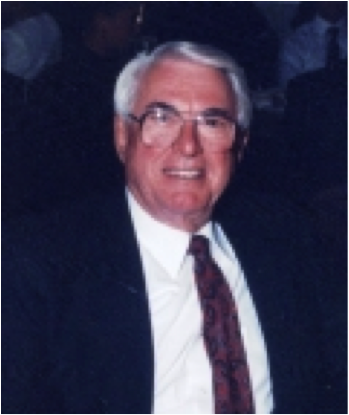 Both Bill Lucas and Charles Quigley, founding executive director of the Center, began their educational careers as teachers in the Los Angeles Unified School District. Quigley’s last teaching assignment in the district was at a central city elementary school whose principal was Bill Lucas. Shortly afterward Bill became the assistant superintendent of LAUSD in charge of government and organizational relations in Sacramento and Washington, D.C. He became a member of the Law in a Free Society advisory committee in 1969 and of the Board of Directors of the Center when it was established by the state bar as an independent nonprofit organization in 1981.
Both Bill Lucas and Charles Quigley, founding executive director of the Center, began their educational careers as teachers in the Los Angeles Unified School District. Quigley’s last teaching assignment in the district was at a central city elementary school whose principal was Bill Lucas. Shortly afterward Bill became the assistant superintendent of LAUSD in charge of government and organizational relations in Sacramento and Washington, D.C. He became a member of the Law in a Free Society advisory committee in 1969 and of the Board of Directors of the Center when it was established by the state bar as an independent nonprofit organization in 1981.
In his position as the chief governmental relations representative of the LAUSD, Bill established outstanding relations with key political figures in the California State Legislature and Congress. He also was actively involved with the Association of California School Administrators, the California State Board of Education and national organizations, such as the American Association of School Administrators and the national elementary, middle, and high school principals’ organizations. Bill was instrumental in the development of support for the Center’s programs in Congress and with major national professional organizations such as the American Association of School Administrators and ACSA.
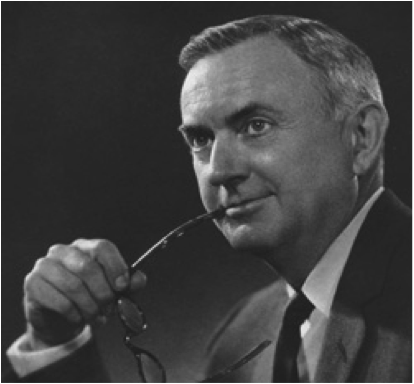 The Center was privileged to have first on its Law in a Free Society Advisory Committee and later on its Board of Directors one of the most prominent twentieth-century scholars on the philosophical foundations and history of education in the United States. R. Freeman Butts, known as “J” to his friends and associates, became affiliated with the Center shortly after his retirement from Teachers College, Columbia University. It is interesting to note that his colleague on the Center’s Board of Directors, Bill Lucas, studied J’s texts when working for his doctorate in education.
The Center was privileged to have first on its Law in a Free Society Advisory Committee and later on its Board of Directors one of the most prominent twentieth-century scholars on the philosophical foundations and history of education in the United States. R. Freeman Butts, known as “J” to his friends and associates, became affiliated with the Center shortly after his retirement from Teachers College, Columbia University. It is interesting to note that his colleague on the Center’s Board of Directors, Bill Lucas, studied J’s texts when working for his doctorate in education.
Up until his death, J devoted considerable time to assisting the Center in all of its major publications, ranging from the texts for the Law in a Free Society program, the We the People: The Citizen & the Constitution texts, Civitas: A Framework for Civic Education, and the National Standards for Civics and Government. The Center also published two of his latest works, The Revival of Civic Learning and The Morality of Democratic Citizenship.
Early in his academic career, Butts, along with George S. Counts, William Heard Kilpatrick, and other members of Teachers College’s Department of Social and Philosophical Foundations of Education, proposed an integrative approach to the study of education and its interaction with cultural and social conditions. During this period, which included his chairmanship of the department from 1948 to 1957, Butts authored several classics in the study of education, including The College Charts its Course (1939, reprinted 1971), A History of Education in American Culture (with Lawrence Cremin, 1953), and A Cultural History of Western Education (1955).
In the post-war period, as America turned from military to diplomatic engagement with the world, Butts’s interests shifted to international and comparative education. In 1954 he received a Fulbright grant to study education in Australia, which resulted in Assumptions Underlying Australian Education (1955). As his interest in educational practice in different cultures grew he took on leadership of Teachers College’s international programs, becoming director of the Teachers for East Africa Project, which was a pilot program for the Peace Corps, and later was named director of studies for the Nigeria Peace Corps Training Program. He served as Teachers College’s associate dean for international studies from 1961 to 1975, also overseeing the college’s first Afghanistan Project. He and his staff acted as consultants to Afghan educators who worked on expanding the number of schools throughout the country and increasing the number of trained educators. During this period, Butts authored American Education in International Development (1963, reprinted 1970), and The Education of the West (1973).
Though perhaps best remembered as an internationalist, Butts wrote prophetically in “Our Tradition of States’ Rights and Education,” a 1959 essay, “Of one thing we can be sure. Education is not only deeply embroiled in some of our most bitter public controversies, but education itself has become one of the central issues in the alignment of political, economic, and social forces in present-day America.”
Following his retirement from Teachers College, Butts continued to focus on issues of public and civic education. Well into the 1980s, he held positions as visiting scholar professor at San Jose State University, Stanford, and finally at the Hoover Institution, where his papers are archived. He continued to publish many books and articles, including The Revival of Civic Learning (1980), The Morality of Democratic Citizenship (1988), and The Civic Mission in Educational Reform (1989). He was proudest of his collaboration with the Center for Civic Education on Civitas: A Framework for Civic Education (1991), which provides a common core of knowledge and a solid intellectual grounding for civic education in the schools. In 1993, he published an autobiographical retrospective on his scholarship, In the First Person Singular: The Foundations of Education.
Butts was born on May 14, 1910, in Springfield, Illinois. He completed both his undergraduate studies and a Ph.D. in history at the University of Wisconsin, where he was a member of the first class of Alexander Meiklejohn’s Experimental College, an experience that shaped his thinking for the remainder of his life. He served on the faculty of Teachers College for forty years, becoming professor of education in 1948, and then the William F. Russell Professor in the Foundations of Education from 1958 to his retirement.
Butts served as a uniformed officer in the Red Cross during World War II and was a member of the Century Association from 1966 until 1978. During the late 1970s, the American Educational Studies Association established the R. Freeman Butts Lecture, a prestigious scholarly lecture delivered at the AESA annual conference and published in the scholarly journal, Educational Studies.
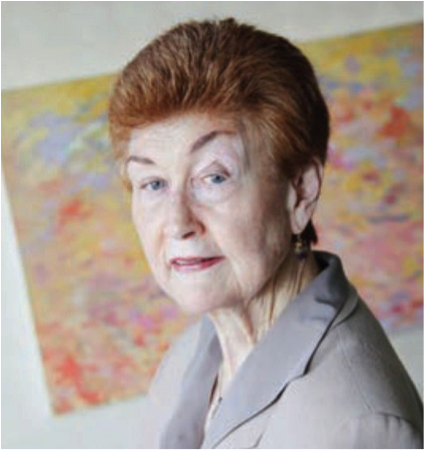 From the establishment of the Law in a Free Society Project in 1969 to the present day the Center for Civic Education has been privileged to have leading members of the legal profession in California serve as the chair of its board and as active members of the board. One of the first chairs was Joanne Garvey of San Francisco. Her leadership during the early years of the Center’s establishment and growth was instrumental in its success.
From the establishment of the Law in a Free Society Project in 1969 to the present day the Center for Civic Education has been privileged to have leading members of the legal profession in California serve as the chair of its board and as active members of the board. One of the first chairs was Joanne Garvey of San Francisco. Her leadership during the early years of the Center’s establishment and growth was instrumental in its success.
A pioneer among female lawyers in California, Garvey practiced business and tax law for most of her fifty-two-year career and argued a case before the U.S. Supreme Court in 1994. She also achieved milestones in what was then a male-dominated legal profession.
She was the first woman on the California State Bar Association’s Board of Governors, from 1971 to 1974, and became its vice president. She was the first female president of the Bar Association of San Francisco, in 1981. And in 1975, she stood up at a State Bar convention in Sacramento and announced the formation of California Women Lawyers.
In a statement from the group’s fortieth anniversary celebration, President Neda Mansoorian said, “California Women Lawyers benefited profoundly from the historic and groundbreaking work of our founding mother, Joanne Garvey—a feminist visionary, a trailblazer.”
Garvey was “one of the earliest and most powerful feminist voices in the national and local legal communities,” said Noreen Farrell, executive director of Equal Rights Advocates, a nonprofit legal organization in San Francisco.
She was also a mentor to many women in the legal field. One was Joan Irion, now a state appeals court justice in San Diego, who sought Garvey’s counsel as a young attorney in the mid 1980s and became her law firm partner in the 1990s.
“There were no role models for us in the law. She was that role model,” Irion said. “She reached out and helped young women, showed us how to become lawyers, how to become professionals.... I would not be where I am if it were not for the rigorous training she gave me.”
A native of Oakland, Garvey graduated with honors from the University of California, Berkeley and its law school. She then found no local law firms willing to hire women, a common experience for new female lawyers. She started at a small Santa Barbara firm in 1962, later worked for several Bay Area firms and wound up as a partner with Sheppard Mullin in San Francisco.





